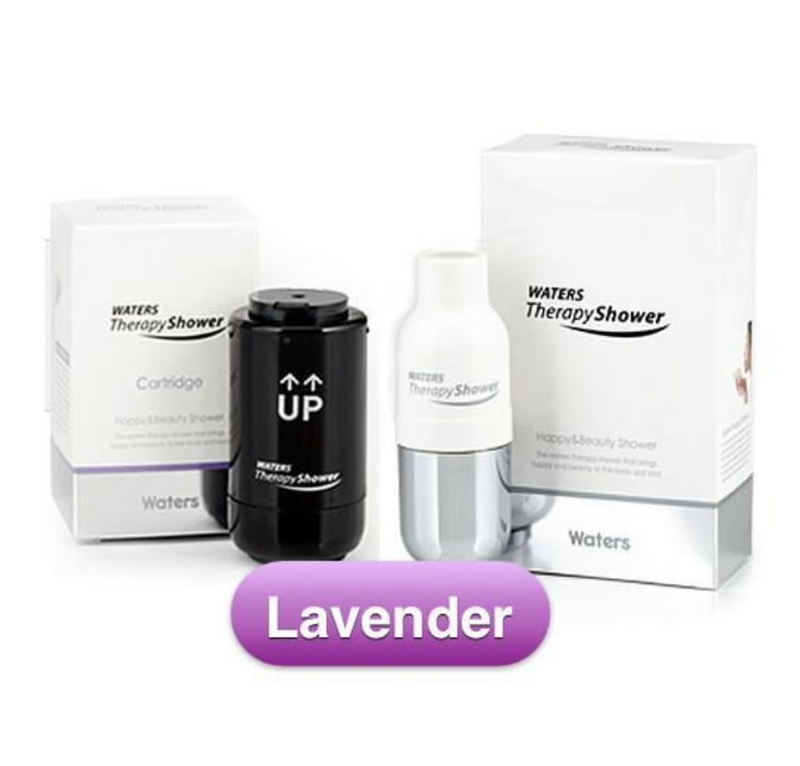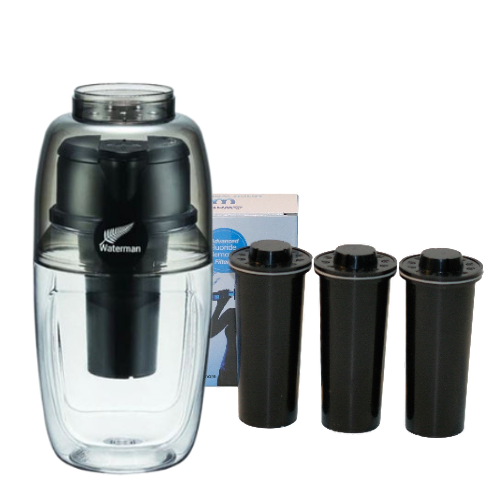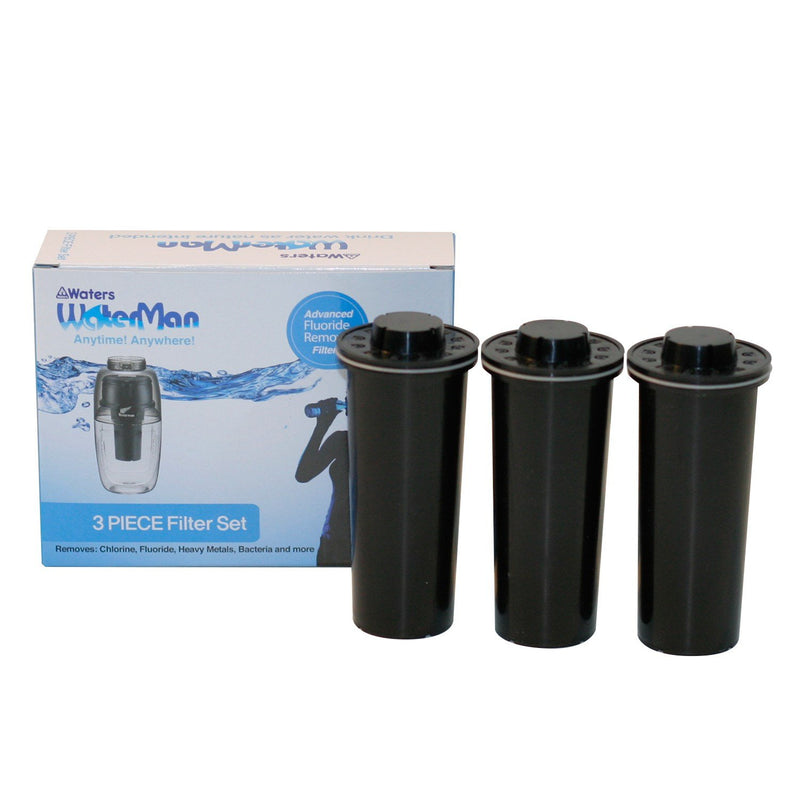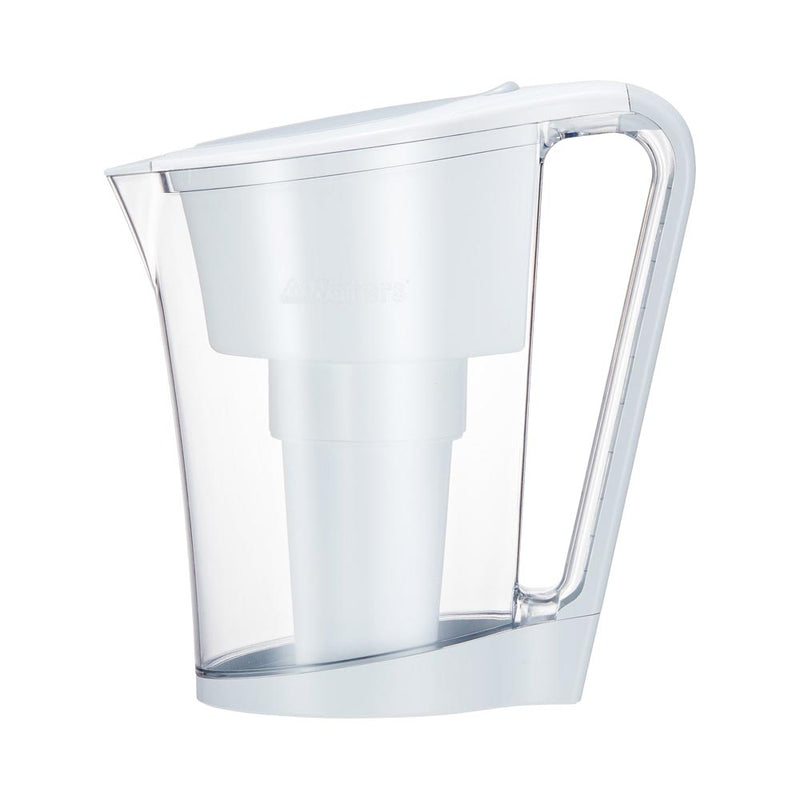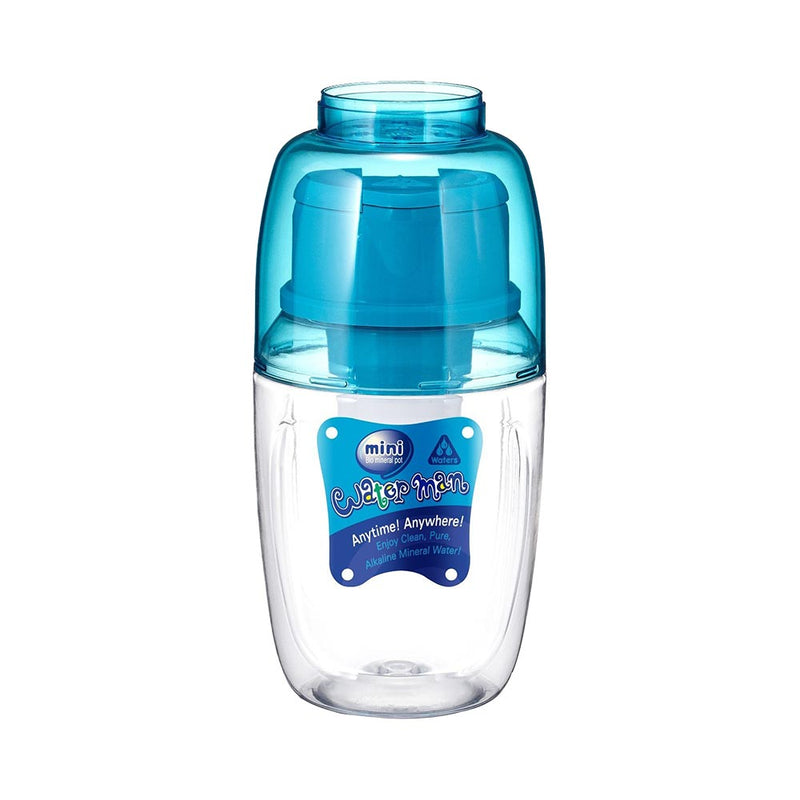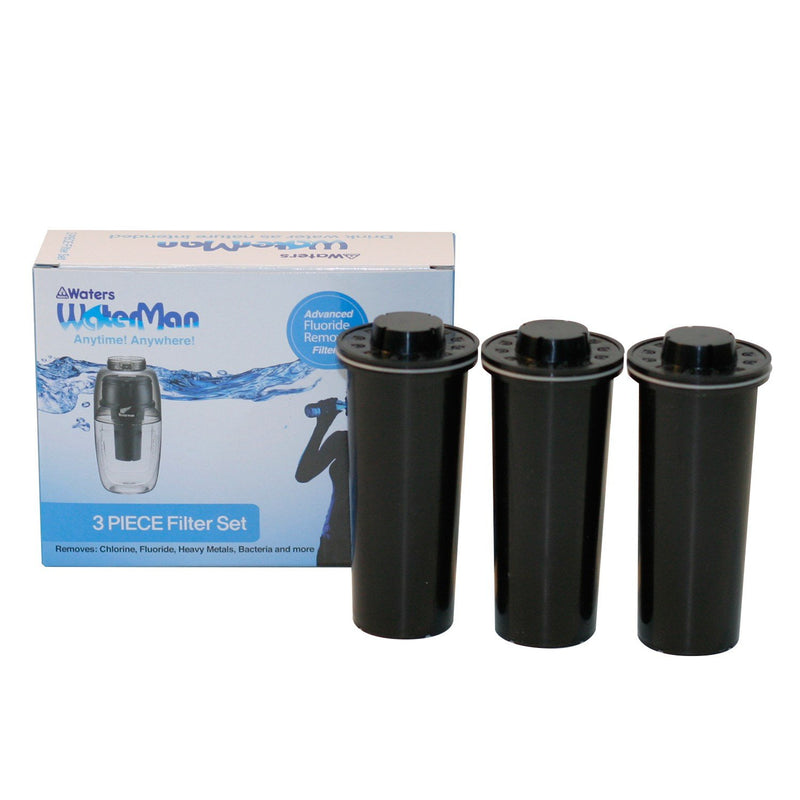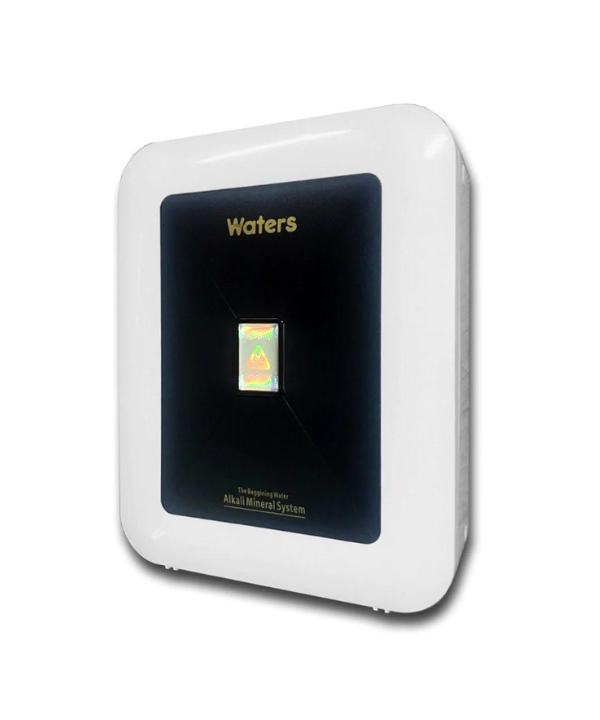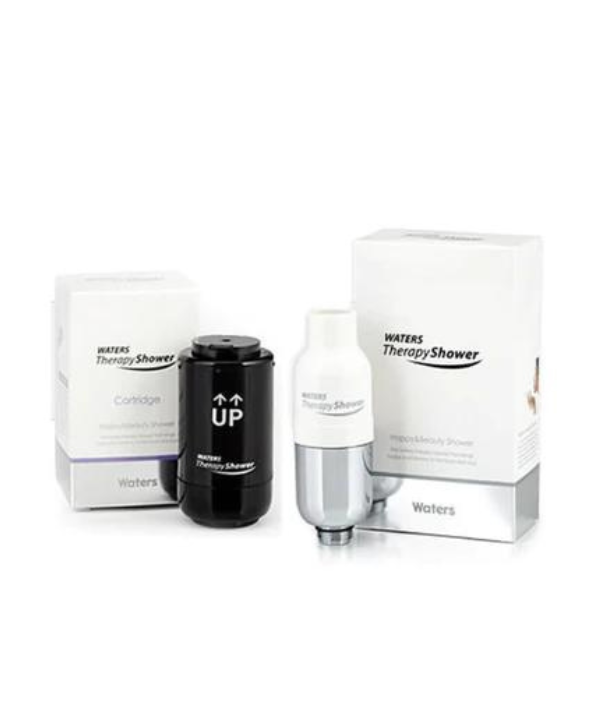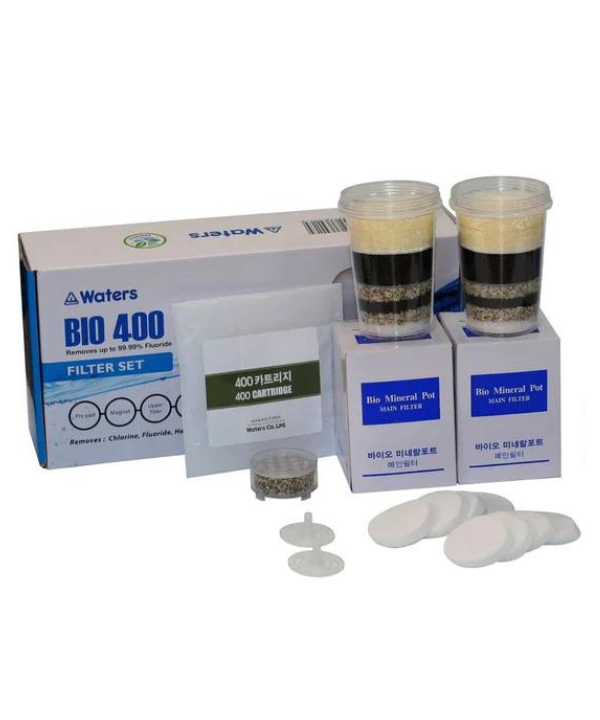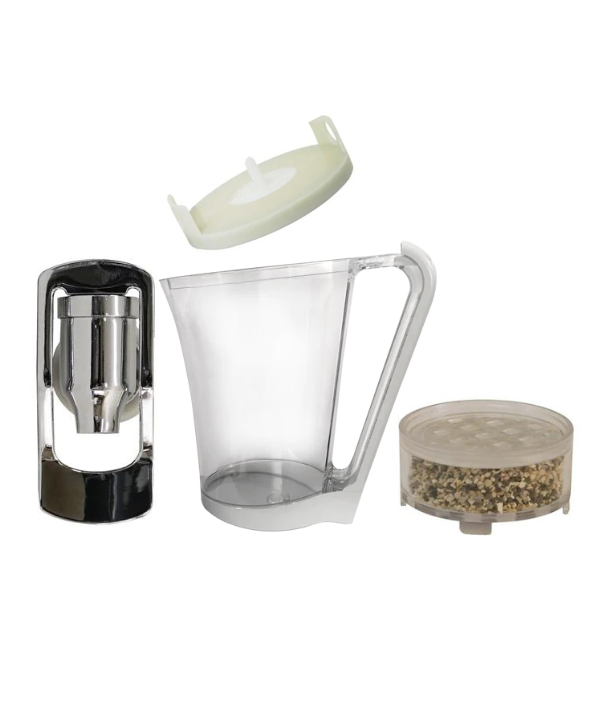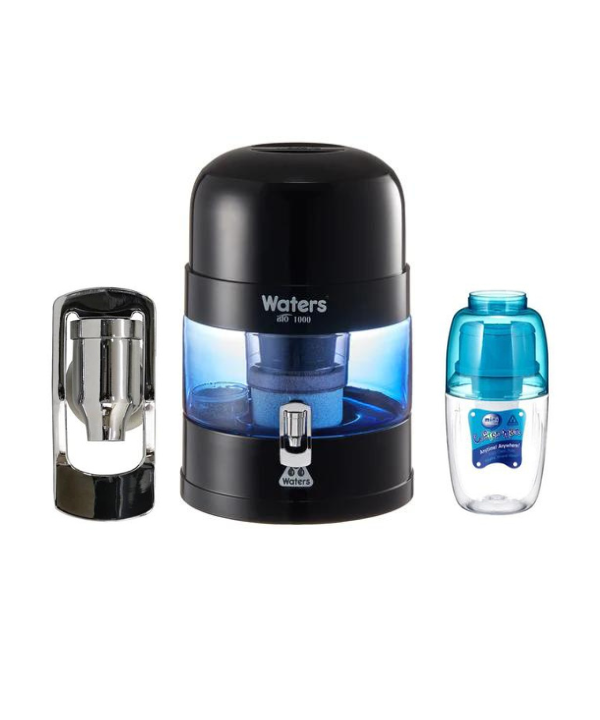The Shocking Truth About The Forever Chemicals You're Drinking

In recent months, headlines across Australia and internationally have been dominated by disturbing reports of microplastics and how man-made "forever chemicals" are finding their way into the human body without breaking down. Forever Chemicals, a class of substances including PFOA and PFOS, are contaminating our tap and groundwater sources, and as the name says, can be in your body for at least 3.5 to more than 7 years.
The discovery of PFAS in several of the very few tested municipal water supplies has caused widespread alarm. Recent reports by major news outlets such as The Sydney Morning Herald, Nine News and ABC News have underscored the urgency of addressing this contamination crisis and recommended that investing in a quality filtration system is your first and best line of defence.
What are Forever Chemicals and Can you Avoid Them?
Forever chemicals, also known as per- and poly-fluoroalkyl substances (PFAS), are synthetic compounds used in various industrial applications and consumer products for their resistance to heat, water, and oil. They include over 10,000 chemical types that don't occur in nature and were invented to make our lives easier with water-repellent clothing, footwear, packages, and more. The most well-known example of Forever Chemicals is Teflon. This popular cookware coating contains thousands of dangerous nonstick, stain-repellent and waterproof chemicals.
Virtually impossible to avoid, today, ubiquitous Forever Chemicals are found in livestock, fish and wildlife, water supplies, and household chemicals and can be airborne via air fresheners, stain-resistant fabrics and cleaning products. They're also evident in dust, soil, paints and varnishes, personal care products, cooking utensils, and fire retardants, along with food packaging, products and fumes produced in factory manufacturing.
Forever Chemicals are everywhere, but scientists say the biggest potential pathway for PFAS accumulation is through drinking contaminated water. Forever Chemicals can get into your water supply through discharge from manufacturing plants, firefighting foams used at municipal bases near water sources or runoff from landfill sites. In September 2024, the Sydney Morning Herald revealed that PFAS levels in the Greaves Creek Water Filtration Plant near the Blue Mountains west of Sydney in NSW had reached 14040ng/L, while the maximum acceptable concentration in drinking water is 10ng/L. The possible source of PFAS in this area is fire fighting foam used in the past to address car crashes on the Great Western Highway nearby. Medlow Dam has been disconnected for PFAS-related investigations.

Frighteningly, these degradation-resistant chemicals can only be expelled from the bloodstream via urination or sweat, otherwise, they are absorbed into other tissues, which means they're still in your body. Shockingly, scientific experts say if you could manage to find a way to avoid Forever Chemicals from entering the body, you could live your monastic remote existence for at least a decade and still not be rid of half those already accumulated prior to your self-imposed exile.
Calculated by a rule of chemistry, a substance's half-life varies from person to person, but if you compare PFAS to heavy metals, which typically break down and leave the body within at least a month to 45 days, the studies prove the need for intervention. The presence of these substances in drinking water has raised significant health concerns, prompting a nationwide debate on water safety.
Rather than staying awake at night worrying about your and your family's health, look for water purification systems that use granular activated carbon (GAC) or reverse osmosis systems, according to the EPA.
How Severe is the PFAS Contamination Crisis Today?
PFAS have been used in industrial processes since the 1950s. For decades, the population has been exposed to Forever Chemicals without knowing of their dangerous effects. Only in the early 2000s, the two most notorious PFAS, perfluorooctanoic acid (PFOA) and perfluorooctanesulfonic acid (PFOS), were phased out of American manufacturing under a directive from the US Environmental Protection Agency (EPA).
In Australia, we're still catching up with the Commonwealth's most recent regulatory action, a ban on the import, use, and manufacture of the more prominent PFOS, PFOA, and PFHxS, due to be implemented on July 1, 2025. But is it too little, too late?
The persistent nature of these chemicals means they accumulate over time, leading to potential health risks even at low exposure levels, so much so that it is now believed there is no safe minimum exposure level. The scale of the issue suggests a more immediate and personalised approach is necessary to ensure safe drinking water for Australian households.

At the time of writing this article, Australia is allowing levels 140 times greater than maximum safe levels in tap water, as determined by the EPA. Furthermore, official Government pages are downplaying the now-established health risks from these contaminants.
What are the Health Implications of PFAS Contamination?
Numerous studies have linked long-term exposure to PFAS to a range of health problems. According to the EPA, these include:
- Cancer: Increased risk of kidney and testicular cancers.
- Immune System: Impaired immune response, reducing the body's ability to fight infections.
- Hormonal Disruption: Interference with natural hormone levels, impacting growth and reproductive health.
- Liver Damage: Elevated levels of liver enzymes indicating liver stress or damage.
- Developmental Issues: Adverse effects on foetal development during pregnancy, potentially leading to birth defects.
- Thyroid Concerns: A recent study published in the Journal of Environmental Science and Technology highlights the correlation between PFAS exposure and thyroid disease, adding another layer of concern for public health.
Can Bottled Water be the Answer?
The short answer—no. The micro and nanoplastics produced from bottled water create other environmental and health issues to consider. New research is also indicating a large number of bottled water brands also showing up as contaminated with forever chemicals. Their contribution to toxic landfills, ocean plastic and microplastic is another cause for concern. If you're wondering what are microplastics, studies have shown that, on average, a 1L water bottle contains roughly 240,000 tiny pieces of plastic, with 90% of these being nanoplastics. These results reflect a 10 to 100 times greater amount of compounds from earlier studies focused on larger microplastics.

Can Water Filters Remove Forever Chemicals from Water?
Rigorous testing has indicated that quality activated carbon and reverse osmosis are highly effective at removing PFAS and PFOA from tap water, all removing up to 99.9% of forever chemicals. Some water treatment plants in Australia already implement these measures, but unfortunately, not all facilities have the budget for such upgrades. Plus, many people still rely on bore water, which may contain high PFAS levels. The best solution is to install and use home filtration systems.
What to Look For in a Water Filter
- Proven Technology: Quality filters are backed by rigorous testing and certification, ensuring they meet the highest water purification standards and can sufficiently remove Forever Chemicals.
- Long-Term Savings: Investing in a water filter saves significant money over time compared to bottled water, potentially saving thousands of dollars.
- Health Benefits: Superior-quality filters should not only remove harmful contaminants but also enhance the water's taste and mineral content and, in some models, alkalise the water, thus promoting overall health, wellness, and hydration.
- Sustainability: Using a water filter reduces plastic waste and environmental impact, aligning with a commitment to a healthier planet. Look for a filter that offers a superior lifespan.
Safeguard Your Health with The Best Water Filters
The issue of forever chemicals in tap water is a danger that demands immediate attention. As Australians become more health-conscious and informed about water quality, Forever Chemicals, and microplastics, the need for effective filtration solutions has never been greater. Waters Co Australia is dedicated to providing top-tier filtration products that tackle this challenge and other water contaminants head-on.

Our range includes portable filters, jug filters, under-sink filters, and benchtop filters— all designed to remove PFOS PFOA Forever Chemicals and other harmful contaminants such as fluoride, chlorine, heavy metals, and bacteria, ensuring your family has access to clean, safe, and healthy drinking water.
Portable Water Filters

Portable water filters are perfect if you're on the go, ensuring you have access to clean water wherever you are. These filters use 7 stages of filtration, including advanced activated carbon and ceramic technologies, to remove up to 99.99% of PFAS, heavy metals, and other impurities. Whether you are hiking, travelling, or at work, our portable filters offer peace of mind and enhanced hydration.
Jug Filters

Ideal for home use for up to 3 people, family trips, camping, boats, and caravans, our jug filters combine convenience with powerful filtration capabilities. Jug filters use a multi-stage process to effectively reduce PFAS, chlorine, lead, and other contaminants. Easy to use and maintain, jug filters are a cost-effective solution for daily hydration needs.
Benchtop Filters

For comprehensive filtration, benchtop filters are unmatched. These high-end filter systems offer the ideal solution for home and the workplace, they require neither electricity nor plumbing and are easily relocated if you move. They can employ a combination of technologies, including membranes, activated carbon, far infrared, magnets, and mineral and bio-ceramic filter stages to remove a wide array of contaminants, including PFAS, transforming your tap water into a great-tasting, activated mineral water. Designed for durability and high performance, benchtop filters ensure every drop of water is as pure as nature intended.
Under Sink filters

Opting for an under-sink filter system offers numerous benefits for your health, home or business. It provides continuous access to clean, safe, and great-tasting water directly from your kitchen tap. Removing contaminants such as chlorine, lead, pesticides, and harmful Forever Chemicals, ensures that every drop you consume is pure. These systems are discreetly installed under your sink, saving valuable counter space and maintaining the aesthetic of your kitchen.
Choose the Right Option for You
Depending on your lifestyle and water quality requirements, any of the Waters Co filtration systems can enhance your daily hydration. Use this table to make a wise choice:
|
Filter Type |
Contaminants Removed |
Mobility |
Convenience |
Number of Users |
|
Portable Filters |
PFAS, heavy metals, chlorine, bacteria, sediment, microplastics, viruses |
Highly portable |
Easy to use and carry, no setup |
1-2 people |
|
Jug Filters |
PFAS, chlorine, lead, pesticides, heavy metals, unpleasant odours |
Moderately portable |
Simple to refill, requires a cartridge |
Up to 3 people |
|
Benchtop Filters |
PFAS, chlorine, heavy metals, pesticides, fluoride, bacteria, viruses, pharmaceuticals |
Stationary but movable |
No installation required, large capacity |
4-6 people |
|
Under-Sink Filters |
PFAS, chlorine, heavy metals, pesticides, fluoride, bacteria, viruses, pharmaceuticals |
Fixed (under-sink) |
Continuous water supply from the tap |
Large households and businesses |
Make Your Drinking Water PFAS Free Today
"We're likely underestimating the environmental burden posed by PFAS."
Prof. Denis O'Carroll – School of Civil and Environmental Engineering and Managing Director of the Water Research Laboratory (WRL)
keep the picture here
Don't wait for government intervention or the next alarming news report. Take control of your water quality and protect your family's health today. Explore our range of water filters and find the perfect solution for your needs. With Waters Co, you're not just investing in a product – you're investing in peace of mind and better health. We want every household to enjoy safe, clean, great-tasting, and healthy water.
FAQs for Forever Chemicals
1. What are Forever Chemicals (PFAS), and why are they a concern in your drinking water?
Forever Chemicals, known as per- and polyfluoroalkyl substances (PFAS), are a category of man-made chemicals that are resistant to heat, water, and oil. They don't break down in the environment and are bioaccumulative in the human body, which can lead to health risks such as cancer and liver damage, impact the immune system, and cause hormone imbalance, fertility problems, and developmental issues in children.
2. How do Forever Chemicals get into the water supply?
PFAS can enter the water supply via industrial discharges, using products that contain Forever Chemicals, and runoff from firefighting foams. They can leach into groundwater from contaminated soil and are found in many consumer products, making them widespread in the environment.
3. What are the best ways to remove Forever Chemicals from your drinking water?
High-quality water purification systems that utilise activated carbon and high-pressure membrane processes such as reverse osmosis are your best defence against PFAS. Check the water purification system is certified to remove PFAS and regularly maintain your filter for optimal performance.
4. How can you avoid Forever Chemicals in the first place?
There are several ways to reduce your PFAS intake, which include:
- Choose products that are labelled PFAS-free and alternatives from non-stick cookware, water-repellent clothing, stain-resistant fabrics and food packaging.
- Filter your drinking water with high-quality filtration systems that use activated carbon and reverse osmosis.
- Reduce your fast-food intake and exposure to takeaway food packaging.
- Choose environmentally friendly fire-resistant foams for your kitchen, home and business.
References
- "Health Impacts of PFAS Exposure." Journal of Environmental Science and Technology.
- "PFAS Contamination in Australian Tap Water." The Sydney Morning Herald,
- "The Growing Concern Over Forever Chemicals in Australia." ABC News,
- https://www.smh.com.au/national/nsw/white-hot-cancer-linked-chemicals-flowing-into-dam-at-50-times-safe-level-20240916-p5kay1.html
- https://theconversation.com/pfas-forever-chemicals-why-epa-set-federal-drinking-water-limits-for-these-health-harming-contaminants-227621
- https://www.9news.com.au/national/toxic-water-australia-pfos-chemicals-call-for-action/a3aaa2d4-6278-44eb-909e-3866ccb1dfd2
- https://au.news.yahoo.com/big-problem-aussie-tap-water-004028427.html
- https://www.unsw.edu.au/newsroom/news/2024/04/pfas-forever-chemicals-above-drinking-water-guidelines-in-global-source-water
- https://www.smh.com.au/national/nsw/only-one-sydney-site-monitored-for-cancer-causing-chemicals-in-drinking-water-20240611-p5jky9.html


